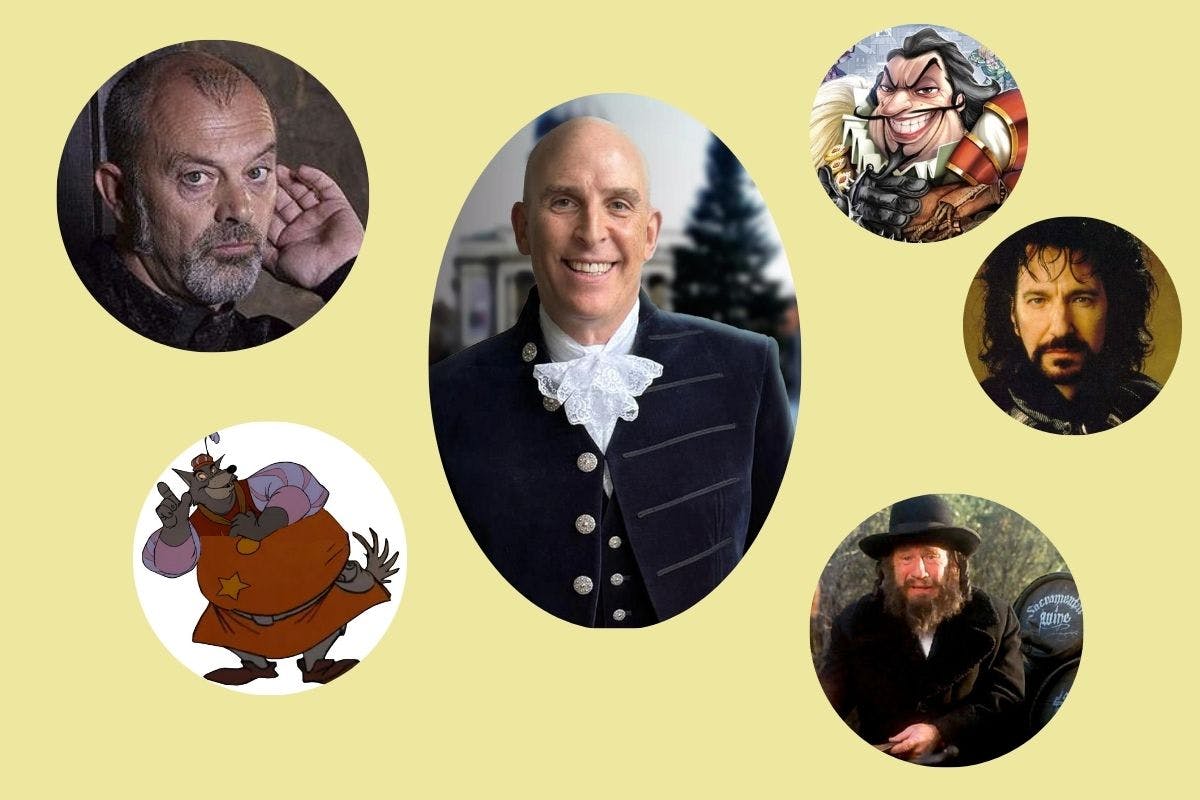Published: 28 November 2023
Last updated: 5 March 2024
Melbourne Theatre Company’s latest production, A Very Jewish Christmas Carol, is both hilarious and humanising, writes JEREMIE BRACKA.
Growing up in suburban Melbourne, the Aussie family across the road fired my gentile imagination each year. Come December, a proud Christmas tree stood tall in the window, shining like a trophy to normalcy. Mrs Sullivan baked ham and cautiously offered me one nativity biscuit. Meanwhile, my family gorged on latkes for Chanukah, the Jewish festival of phlegm.
Naturally, my immigrant folks were far less enthused by Christmas. My Polish mother insisted that Santa Claus was a Nazi. She suggested that I ask Mrs Sullivan about her attic and whether her family owned a factory. Instead of red and green ribbons, I was gifted a story of survival, genocide and high cholesterol. For Australian Jews, December rotates around two cultural planets many light years apart.
Cue Melbourne Theatre Company’s A Very Jewish Christmas Carol, which squares these two circles. Created by Elise Esther Hearst and Phillip Kavanagh, this production happily reconciles Jewish with Gentile, past ghosts with our better angels. The show opens with a life-sized dreidel and Christmas tree duet. Drawing on Charles Dickens’ classic tale, festive traditions are harmonised through Yiddish song, Christian fable and acerbic wit. Welcome to "Chrismukkah": wherever Dickens’ body once lay ended up in Springvale by the second act. Apparently, he hated Jews. Oy humbug!

At the centre of the play is heavily pregnant Elysheva (Ely) Scroogavitz, played by Miriam Glaser. Along with the family bakery, she inherits the stoicism and self-reliance of her late Bubi (“If you want something done properly, you do it yourself!”). She is pulling an all-nighter trying to recreate her grandmother’s famed gingerbread. It is Christmas eve. Ely is about to give birth while also bearing the loss of her non-Jewish fiancé, red-headed Ben (Michael Whalley), who dies after being stung by a bee. Note to Jews: this is what comes from care-free wild-flower picking!
Each act is marked by another festive ghost flying through Ely’s bakery with the majesty of Mary Poppins. From the reindeer of Chrismukkah Past, Gingerbread Golem and Lilith Claus, the play showcases superb costuming (Dann Barber) and staging wizardry (Jacob Battista). Maximum respect to the creative crew.
Alongside punchy one-liners are fierce family loyalties and heartfelt tenderness. Just like the gingerbread, the Yiddishkeit is timeless sweet dough.
The play reveals the tensions of inter-marriage. Ely’s over-bearing Jewish mother Fran (Natalie Gumsu) squabbles with Ben’s Anglo-Christian mother Carol (Louise Siversen). Think Meet the Fockers and My Big Fat Greek Wedding. While one matriarch reels from post-Holocaust trauma (“My mother was incapable of love or human emotion”), the other agonises over gender-neutral wallpaper. Lamenting the missing Christmas tree, Carol explodes, exclaiming, “don’t take this from me Fran! You people have so many other holidays … a little bit of Jesus never hurt anyone!”. Both actors deliver performances that are hilarious and humanising in equal measure.
Stage veteran and national treasure Evelyn Krape steals the show as the ghost of Bubi. She reincarnates first as the reindeer, dybbuk, and then as a life-size gingerbread, golem. Her timing and craft are impeccable. She delivers Yiddish quips with exacting sarcasm: “If a girl is ugly, she blames it on the mirror” and “I might as well have had stones instead of children”.
Hidden in the recipe of her Polish gingerbread lies the sting in the fairytale. We are taken on a journey back to pre-war Poland. Bubi’s impassioned speech to Ely that “history repeats itself and yet does not have to … we need the strength to see our ghosts, speak their names” made by any other actor could fall as flat as a potato cake. But Krape straddles the whimsical light of Willy Wonka with the gravitas of Yentl.
In light of Gaza and anti-Semitism, this show is joyful escapism. At times, it feels more Greenwich Village than Glick’s Bakery, more California than Caulfield. The new age Rabbi Rivka (Jude Perl) strikingly resembles Rabbi Raquel from the American TV hit Transparent. If only carolers and super-sized Chanukiahs paraded down Carlisle Street. I wish they did.
Overall, this is an energetic, well-directed show by Sarah Giles. Alongside punchy one-liners are also fierce family loyalties and heartfelt tenderness. Just like the gingerbread, the Yiddishkeit is timeless sweet dough. In the words of Bubi: “A drop of love is worth more than an ocean of tears”.
So, whether you wish upon a star or eight candles, this show is for you. Unlike my suburban childhood, expect far more than two festive ships passing in the light!



